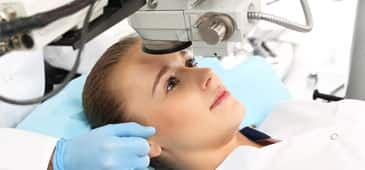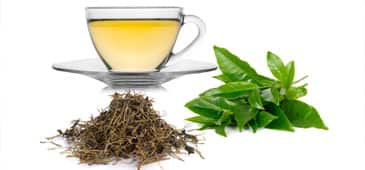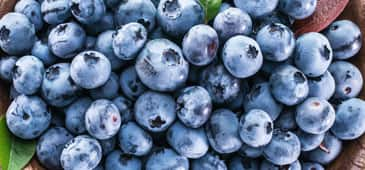
What's Hot
What's Hot
News flashes are posted here frequently to keep you up-to-date with the latest advances in health and longevity. We have an unparalleled track record of breaking stories about life extension advances.
Decreased vitamin C levels found in patients treated for hematologic malignancies
 March 30 2016. An article appearing in Results in Immunology documents the finding of researchers at Maastricht University in The Netherlands of decreased serum levels of vitamin C in patients with hematologic malignancies that include leukemia, multiple myeloma and non-Hodgkin lymphoma.
March 30 2016. An article appearing in Results in Immunology documents the finding of researchers at Maastricht University in The Netherlands of decreased serum levels of vitamin C in patients with hematologic malignancies that include leukemia, multiple myeloma and non-Hodgkin lymphoma.
"Vitamin C or ascorbic acid, an essential water-soluble vitamin with many functions, has a crucial role in cellular immune responses," write Mirelle J. A. J. Huijskens and colleagues in their introduction to the article. "Patients treated with intensive chemotherapy and/or hematopoietic stem cell transplantation (HSCT) have low immune cell counts for weeks to months. Meanwhile, patients are highly susceptible to infections resulting in morbidity and mortality."
"As ascorbic acid has a major influence on (re)generation of immune cells in vitro, we executed an observational study in which ascorbic acid serum values of patients with hematological malignancies treated with and without hematopoietic stem cell transplantation were compared with those of healthy volunteers to see if low ascorbic acid levels should be considered of importance regarding immune recovery of these patients."
The researchers measured vitamin C levels in 79 healthy volunteers and 42 hemato-oncology patients treated with chemotherapy or hematopoietic stem cell transplantation. While healthy subjects had median serum ascorbic acid levels of 65 micromoles per liter, those with hematologic malignancies had levels of 20.5 micromoles per liter. Nineteen percent of the cancer patients were found to be deficient in the vitamin.
The authors conclude that "Since ascorbic acid might be crucial for immune function and for in vitro development and expansion of T and natural killer cells from stem cells, we are currently studying the function and recovery of immune cells while patients are on treatment for various malignancies, and determine the correlation of ascorbic acid serum and leukocyte levels and the possible effect of vitamin C supplementation."
—D Dye
Study finds aging-associated changes in specific metabolites
 March 28 2016. Research reported the week of March 28, 2016 in the Proceedings of the National Academy of Sciences reveals the discovery of age-related changes in 14 compounds produced in the body during metabolism.
March 28 2016. Research reported the week of March 28, 2016 in the Proceedings of the National Academy of Sciences reveals the discovery of age-related changes in 14 compounds produced in the body during metabolism.
Professor Mitsuhiro Yanagida of Okinawa Institute of Science and Technology Graduate University and associates examined blood samples from 15 adults whose age averaged 29 years and 15 older adults of an average age of 81 years. Liquid chromatograph-mass spectrometry was utilized to identify blood metabolites that differed between the groups.
"We found 14 age-related compounds," Dr Yanagida reported. "Of these 14 compounds, half of them had decreased in elderly people. The decrease was found in antioxidants and in compounds related to muscle strength. Therefore, elderly people had less antioxidants and less muscle strength."
Metabolites that increased were associated with declining kidney and liver function. "This makes sense," Dr Yanagida noted. "Common sense tells you that as we get older we lose abilities like muscle strength and kidney function, but no one has ever scientifically proved that this is the case before."
The decline in antioxidant and muscle strength-associated metabolites found in the older group emphasizes the need for a healthy diet and increased exercise as people grow older. "Longevity is a great mystery for us," Dr Yanagida observed. "We want to find how elderly people can live a happy final stage of life. This is the way we can contribute to human health."
—D Dye
Higher vitamin C intake may help slow cataract progression
 March 25 2016. Findings from a study published in the June 2016 issue of Ophthalmology suggest that consuming a high amount of vitamin C could slow the risk of cataract progression by a third compared to a low intake.
March 25 2016. Findings from a study published in the June 2016 issue of Ophthalmology suggest that consuming a high amount of vitamin C could slow the risk of cataract progression by a third compared to a low intake.
Researchers at King's College London examined data from over 1,000 pairs of twins enrolled in the Twins UK registry. Questionnaire responses provided information concerning the intake of vitamin C and other nutrients. Digital imaging evaluated lens opacity in all subjects at age 60 and in 324 sets of twins ten years later.
At the beginning of the study, participants whose dietary vitamin C intake was among the highest one-third of participants had a 19% lower risk of cataract than those whose intake was among the lowest third. After ten years, subjects who consumed a high amount of the vitamin had a 33% lower risk of cataract progression. Genetic factors were determined to account for 35% of the difference in progression and environmental factors, including diet, accounted for the remainder. The study is the first to suggest that genetic factors are less important in cataract progression than those attributed to environment.
"While we cannot totally avoid developing cataracts, we may be able to delay their onset and keep them from worsening significantly by eating a diet rich in vitamin C," stated lead researcher Christopher Hammond, MD, FRCOphth, who is a professor of ophthalmology at King's College.
"The findings of this study could have significant impact, particularly for the aging population globally by suggesting that simple dietary changes such as increased intake of fruit and vegetables as part of a healthier diet could help protect them from cataracts," he observed. "While we cannot avoid getting older, diabetes and smoking are also risk factors for this type of cataract, and so a healthy balanced diet and lifestyle generally should reduce the risk of needing a cataract operation."
—D Dye
Vitamin D supplementation shows promise for Hashimoto's thyroiditis
 March 23 2016. The September-December 2015 issue of the Hellenic Journal of Nuclear Medicine published the finding of Greek researchers of an association between low serum vitamin D levels and an increase in a marker of the autoimmune disease known as Hashimoto's thyroiditis (HT).
March 23 2016. The September-December 2015 issue of the Hellenic Journal of Nuclear Medicine published the finding of Greek researchers of an association between low serum vitamin D levels and an increase in a marker of the autoimmune disease known as Hashimoto's thyroiditis (HT).
In Hashimoto's thyroiditis, the thyroid gland is attacked by the immune system, which can lead to hypothyroidism. The condition mainly affects middle-aged and older women and is the most common cause of hypothyroidism in the U.S.
The study included 218 Hashimoto's thyroiditis patients with normal thyroid stimulating hormone (TSH) levels. Subjects in the study resided in Crete, an island that has abundant sunlight exposure needed for vitamin D formation. Blood tests measured serum 25-hydroxyvitamin D [25(OHD)] and other values. Hashimoto's thyroiditis diagnosis was determined by elevated levels of the antibodies antithyroid peroxidase and/or antithyroglobulin, and ultrasound results.
Deficient serum vitamin D levels of less than 30 nanograms per milliliter were detected in 85.3% of the participants. Among deficient subjects, antithyroid peroxidase levels were significantly higher than levels measured in the sufficient group; however, supplementation with 1,200 to 4,000 IU vitamin D3 daily for four months resulted in a 20.3% decrease by the end of the study.
"We have shown that the majority (85.3%) of our Greek patients with HT residing and working on the island of Crete had low serum 25(OH)D levels inversely correlated with serum antithyroid peroxidase thyroid antibodies,' authors Elias E. Mazokopakis, MD, PhD, and colleagues conclude. "Also, our study revealed that 4 months cholecalciferol supplementation in these patients caused a significant decrease (20.3%) in serum antithyroid peroxidase levels. These findings suggest that vitamin D deficiency may be related to pathogenesis of HT and that its supplementation could contribute to patients' with HT treatment."
—D Dye
Meta-analysis adds evidence to antidepressant effect for omega-3
 March 21 2016. Findings from a meta-analysis reported online on March 15, 2016 in the Nature journal Translational Psychiatry add more evidence to an association between higher omega-3 polyunsaturated fatty acid intake and a lower risk of major depressive disorder (MDD).
March 21 2016. Findings from a meta-analysis reported online on March 15, 2016 in the Nature journal Translational Psychiatry add more evidence to an association between higher omega-3 polyunsaturated fatty acid intake and a lower risk of major depressive disorder (MDD).
Roel J. T. Mocking and colleagues selected 13 trials that included a total of 1,233 subjects for their analysis. Studies were restricted to randomized placebo-controlled trials that included adults diagnosed with major depressive disorder, excluding MDD secondary to other neuropsychiatric disorders and perinatal and perimenopausal MDD.
Compared to placebo, omega-3 fatty acid intake was associated with beneficial effects, particularly among participants who were using antidepressant drugs or who received higher doses of the omega-3 fatty acid eicosapentaenoic acid (EPA). The authors suggest that omega-3's antidepressant defect is the result of anti-inflammatory characteristics of EPA's metabolic byproducts. "Future precision/personalized medicine trials should establish whether possible interactions between EPA and antidepressants could provide targets to improve antidepressant response and its prediction," the authors conclude.
"This new meta-analysis nuances earlier research on the importance of long chain omega-3s in MDD management," stated lead author Dr. Mocking, who is a researcher at the Program for Mood Disorders in the Department of Psychiatry at the Academic Medical Center of the University of Amsterdam. "Omega-3 supplements may be specifically effective in the form of EPA in depressed patients using antidepressants. This could be a next step to personalizing the treatment for depression and other disorders."
—D Dye
Green tea extract supplementation associated with decreased liver enzymes in nonalcoholic fatty liver disease patients
 March 18 2016. Results of a randomized trial reported in the February 1, 2016 edition of the International Journal of Preventive Medicine reveal a reduction in liver enzymes among patients with nonalcoholic fatty liver disease (NAFLD) given a green tea extract supplement.
March 18 2016. Results of a randomized trial reported in the February 1, 2016 edition of the International Journal of Preventive Medicine reveal a reduction in liver enzymes among patients with nonalcoholic fatty liver disease (NAFLD) given a green tea extract supplement.
"Experimental evidence supports a role of green tea extract or its catechins in protecting against NAFLD by regulating energy homeostasis and decreasing oxidative stress and inflammatory responses," write Ali Pezeshki and colleagues at Iran's Isfahan University of Medical Sciences. "However, the effect of the green tea extract on humans and its detailed mechanism have yet to be clarified."
The trial included 80 men and women with elevations of the liver enzymes alanine aminotransferase (ALT) and aspartate aminotransferase (AST) and ultrasonography diagnosed NAFLD who received 500 milligrams green tea extract or a placebo for 90 days. Weight and ALT, AST and alkaline phosphatase (ALP, another liver enzyme) levels were measured at the beginning of the study and at twelve weeks.
Among those who received the green tea extract, ALT and AST were significantly lowered compared with levels measured at the beginning of the study, while nonsignificant reductions occurred in the placebo group.
In their discussion of the findings, the authors remark that epigallocatechin gallate (EGCG), one of the main catechins in green tea, is believed to reduce oxidative stress in the liver that can contribute to NAFLD. Other research has shown that catechins increase liver lipid metabolism.
"Results of this randomized clinical trial shows that green tea extract supplementation decrease ALT and AST levels after 12 weeks period in patients with NAFLD," the authors conclude. They add that lifestyle modifications, particularly weight reduction, could further improve the condition of this disease.
—D Dye
Findings support Harman’s hypothesis
 March 16 2016. An article appearing on March 15, 2016 in Nature Communications supports the oxidative hypothesis of aging submitted by Denham Harman in 1956, which blames much of what we call aging on free radical damage. The hypothesis has recently been all but dismissed by some individuals, however, it remains obvious that oxidative stress is involved in aspects of aging and age-related disease, if not its sole cause.
March 16 2016. An article appearing on March 15, 2016 in Nature Communications supports the oxidative hypothesis of aging submitted by Denham Harman in 1956, which blames much of what we call aging on free radical damage. The hypothesis has recently been all but dismissed by some individuals, however, it remains obvious that oxidative stress is involved in aspects of aging and age-related disease, if not its sole cause.
For their research, Manuel Serrano of the Spanish National Cancer Research Center and colleagues utilized mice bred to overexpress an enzyme known as glucose-6-phosphate dehydrogenase (G6PD), which is necessary for the production of NADPH, an enzyme that protects against oxidative damage. "As anticipated, the cells in these transgenic animals are more resistant to highly toxic artificial oxidative treatments, thus proving that an increase in G6PD really improves antioxidant defenses," reported first author Sandrina Nóbrega-Pereira, of the University of Lisbon.
Not only did the transgenic mice have lower levels of oxidative damage than normal mice, those with increased G6PD expression and consequently higher NADPH levels experienced delayed aging, improved sugar metabolism and better movement coordination. Furthermore, transgenic females lived 14% longer than nontransgenic mice. "This increased longevity, although modest, is striking taking into account that until now attempts to increase longevity by manipulating individual antioxidant enzymes had failed," noted co-first author Pablo Fernández-Marcos.
An explanation for the finding may be an increase in the cells’ global antioxidant capacity. "Compared to the traditional approach of administering antioxidants that react directly with oxygen, we have stimulated all the cell's natural antioxidant mechanisms by raising G6PD levels, and its by-product, NADPH," explained coauthor Mari Carmen Gómez-Cabrera of the University of Valencia.
The authors suggest the use of pharmaceuticals or nutritional supplements such as vitamin B3 that increase NADPH to delay aging and related diseases.
—D Dye
Blueberries show promise for improving cognitive impairment
 March 14 2016. Findings from a study reported on March 11, 2016 in Scientific Reports suggest a potential role for a combination of antioxidants in the prevention of a common form of hereditary deafness caused by mutations in the connexin 26 gene.
March 14 2016. Findings from a study reported on March 11, 2016 in Scientific Reports suggest a potential role for a combination of antioxidants in the prevention of a common form of hereditary deafness caused by mutations in the connexin 26 gene.
"Many babies born with a genetic mutation that causes deafness pass their newborn screening test but then lose their hearing later in life," explained author Glenn Green, MD, who is an associate professor of pediatric otolaryngology at the University of Michigan's C.S. Mott Children's Hospital. "These patterns suggest that for some children, there may be an opportunity to potentially save cells present at birth. For these childhood cases it's crucial that we identify therapies that prevent progression and reverse loss of hearing.
In mice with a deletion of the connexin 26 gene, prenatal or postnatal supplementation with a regimen of beta carotene, vitamins C and E and magnesium slowed hearing loss progression and improved hearing thresholds. "Our findings suggest that a particular high dose of mineral and vitamin supplements may be beneficial to one genetic mutation," observed senior author Yehoash Raphael, PhD, who is a professor in the Department of Otolaryngology-Head and Neck Surgery at the University of Michigan Medical School.
Coauthor Josef Miller, PhD, who developed the antioxidant formula, noted that lowering overstimulation-related oxidative stress has been shown protect the ear's sensory hair cells. Additionally, antioxidants have been demonstrated to preserve cell connections impacted by connexin 26 loss.
"These findings are encouraging for those of us who treat children with progressive connexin 26 hearing loss, and possibly for other mutations not yet tested," Dr Green remarked. "Further studies are needed to confirm these findings in children and to explore whether oral administration of antioxidants could someday be considered as an effective treatment."
—D Dye
Supplements could aid in prevention of type of hereditary deafness
 March 11 2016. Findings from a study reported on March 11, 2016 in Scientific Reports suggest a potential role for a combination of antioxidants in the prevention of a common form of hereditary deafness caused by mutations in the connexin 26 gene.
March 11 2016. Findings from a study reported on March 11, 2016 in Scientific Reports suggest a potential role for a combination of antioxidants in the prevention of a common form of hereditary deafness caused by mutations in the connexin 26 gene.
"Many babies born with a genetic mutation that causes deafness pass their newborn screening test but then lose their hearing later in life," explained author Glenn Green, MD, who is an associate professor of pediatric otolaryngology at the University of Michigan's C.S. Mott Children's Hospital. "These patterns suggest that for some children, there may be an opportunity to potentially save cells present at birth. For these childhood cases it's crucial that we identify therapies that prevent progression and reverse loss of hearing.
In mice with a deletion of the connexin 26 gene, prenatal or postnatal supplementation with a regimen of beta carotene, vitamins C and E and magnesium slowed hearing loss progression and improved hearing thresholds. "Our findings suggest that a particular high dose of mineral and vitamin supplements may be beneficial to one genetic mutation," observed senior author Yehoash Raphael, PhD, who is a professor in the Department of Otolaryngology-Head and Neck Surgery at the University of Michigan Medical School.
Coauthor Josef Miller, PhD, who developed the antioxidant formula, noted that lowering overstimulation-related oxidative stress has been shown protect the ear's sensory hair cells. Additionally, antioxidants have been demonstrated to preserve cell connections impacted by connexin 26 loss.
"These findings are encouraging for those of us who treat children with progressive connexin 26 hearing loss, and possibly for other mutations not yet tested," Dr Green remarked. "Further studies are needed to confirm these findings in children and to explore whether oral administration of antioxidants could someday be considered as an effective treatment."
—D Dye
Supplementation improves survival in mouse model of human vitamin C deficiency
 March 9 2016. Research reported on February 20, 2016 in Aging found that supplementation with vitamin C (ascorbate) corrects some of the deficits observed in mice bred to lack an enzyme that rendered them, like humans, unable to manufacture the vitamin.
March 9 2016. Research reported on February 20, 2016 in Aging found that supplementation with vitamin C (ascorbate) corrects some of the deficits observed in mice bred to lack an enzyme that rendered them, like humans, unable to manufacture the vitamin.
"Most mammals are capable of synthesizing their own ascorbate and are thus not prone to develop vitamin C deficiency," authors Lucie Aumailley and colleagues explain. "Humans, however, have a mutation in the gene encoding the enzyme gulonolactone oxidase (GULO) necessary for the last step of ascorbic acid synthesis."
After weaning, the animals were supplemented with a low dose, high dose or no vitamin C, and serum metabolites and other factors were measured at four months of age. Those that were not supplemented with the vitamin were euthanized within six weeks due to poor health and significant weight loss. While mice that received the low dose of vitamin C survived longer than unsupplemented mice, they also experienced poor health and weight loss over up to 16 months that necessitated eventual euthanasia. However, animals that received the high dose experienced a median life span of 23 months and a maximum life span of 32 months, while the median achieved in non-modified untreated animals was 23.8 and the maximum was 30 months. Supplementation with vitamin C was additionally associated with improved levels of several lipids and cardiovascular risk factors.
"Median life span of the different cohorts of mice (including untreated wild type mice) correlated positively with the mean levels of ascorbate measured in the serum of each group of mice," the authors note.
"Our study demonstrates the impact of suboptimal levels of ascorbate on longevity and the metabolic profile of a mouse model, that similar to humans, lacks the enzyme required for the synthesis of ascorbate," they conclude.
—D Dye
Study suggests protective effect for broccoli against nonalcoholic fatty liver, liver cancer
 March 7 2016. The March 1, 2016 issue of the Journal of Nutrition reported the outcome of research that revealed an association between a broccoli-supplemented diet and a lower risk of fatty liver and liver cancer in obese mice.
March 7 2016. The March 1, 2016 issue of the Journal of Nutrition reported the outcome of research that revealed an association between a broccoli-supplemented diet and a lower risk of fatty liver and liver cancer in obese mice.
"We decided that liver cancer needed to be studied particularly because of the obesity epidemic in the U.S.," observed lead researcher Elizabeth Jeffery, of the University of Illinois. "It is already in the literature that obesity enhances the risk for liver cancer and this is particularly true for men."
The researchers fed mice a Western diet high in lard and sucrose with or without freeze dried broccoli, or a standard control diet. The animals subsequently received weekly injections of a carcinogen that has the potential to induce tumors in the liver and other organs. "We wanted to look at this liver carcinogen in mice that were either obese or not obese," Dr Jeffery explained. "We did not do it using a genetic strain of obese mice, but mice that became obese the way that people do, by eating a high-fat, high-sugar diet."
While the Western diet was associated with in an increase in the number and size of cancerous liver nodules, mice that received broccoli developed fewer nodules. "That was what we really set out to show," Dr Jeffery remarked. "But on top of that we were looking at the liver health."
"We found that the Westernized diet did increase fatty liver, but we saw that the broccoli protected against it," she said. "Broccoli stopped too much uptake of fat into the liver by decreasing the uptake and increasing the output of lipid from the liver."
Previous research conducted by Dr Jeffery found that chopping or steaming broccoli was the best way to enhance the availability of sulforaphane, broccoli's anticancer compound.
—D Dye
High coffee intake associated with lower MS risk
 March 4 2016. An article published in the Journal of Neurology Neurosurgery & Psychiatry on March 3, 2016 reports an association between increased coffee drinking and a lower risk of developing multiple sclerosis (MS).
March 4 2016. An article published in the Journal of Neurology Neurosurgery & Psychiatry on March 3, 2016 reports an association between increased coffee drinking and a lower risk of developing multiple sclerosis (MS).
Subjects in the current investigation were derived from a case-control study in Sweden in which 1,620 patients with MS were matched for age and other factors with 2,788 control subjects, and a study in the U.S. that matched 1159 MS patients with 1,172 controls. Participants were questioned concerning their history of coffee drinking over the years, including quantity consumed.
Men and women who consumed approximately six cups of coffee per day had a 30% lower risk of MS compared to no intake in the Swedish study and a 31% lower risk in the U.S. study. The number of years coffee was consumed did not appear to influence the reduction in risk experienced by the control group.
"By upregulating adenosine A1 receptors, consumption of caffeine attenuates neuroinflammation and demyelination in animal models of MS," authors A. K. Hedström and colleagues write, while noting the possibility that other compounds in the beverage could be responsible for the finding.
"Although it remains to be shown whether drinking coffee can prevent the development of MS, the results of these thorough analyses add to the growing evidence for the beneficial health effects of coffee," write Drs Elaine Kingwell and José Maria Andreas Wijnands, of the Faculty of Medicine, University of British Columbia in an accompanying editorial.
"The intriguing findings indicate that the role of coffee in the development of MS clearly warrants further investigation, as do the mechanisms that underlie the relationship," they conclude. "In turn, this could potentially contribute to a better understanding of MS etiology and the development of novel MS therapies."
—D Dye
Insufficient vitamin D levels associated with aggressive prostate cancer
 March 2 2016. On February 22, 2016, the Journal of Clinical Oncology published an article by Dr Adam Murphy and colleagues at Northwestern University that reported an association between insufficient serum vitamin D levels and aggressive prostate cancer, which is associated with a less favorable chance of survival in comparison with nonaggressive disease.
March 2 2016. On February 22, 2016, the Journal of Clinical Oncology published an article by Dr Adam Murphy and colleagues at Northwestern University that reported an association between insufficient serum vitamin D levels and aggressive prostate cancer, which is associated with a less favorable chance of survival in comparison with nonaggressive disease.
The current study utilized data from a larger study involving 1,760 residents of the Chicago area, among whom 190 men underwent radical prostatectomies due to prostate cancer. Blood samples collected prior to surgery were analyzed for serum 25-hydroxyvitamin D.
Eighty-seven men had indications of aggressive disease at the time of their surgeries. Having an insufficient vitamin D level of less than 30 nanograms per milliliter (ng/mL) was associated with a 2.64 times greater adjusted risk of adverse pathology compared with higher levels of the vitamin. The finding could aid in the prediction of which men would be appropriate candidates for active surveillance (otherwise known as "watchful waiting"), which is an option for patients with nonaggressive disease.
"Vitamin D deficiency may predict aggressive prostate cancer as a biomarker," commented Dr Murphy, who is an assistant professor of urology at Northwestern University Feinberg School of Medicine and a Northwestern Medicine urologist. "Men with dark skin, low vitamin D intake or low sun exposure should be tested for vitamin D deficiency when they are diagnosed with an elevated PSA or prostate cancer. Then a deficiency should be corrected with supplements."
"It's very hard to have normal levels when you work in an office every day and because of our long winter," Dr Murphy observed. "All men should be replenishing their vitamin D to normal levels. It's smart preventive health care."
—D Dye

